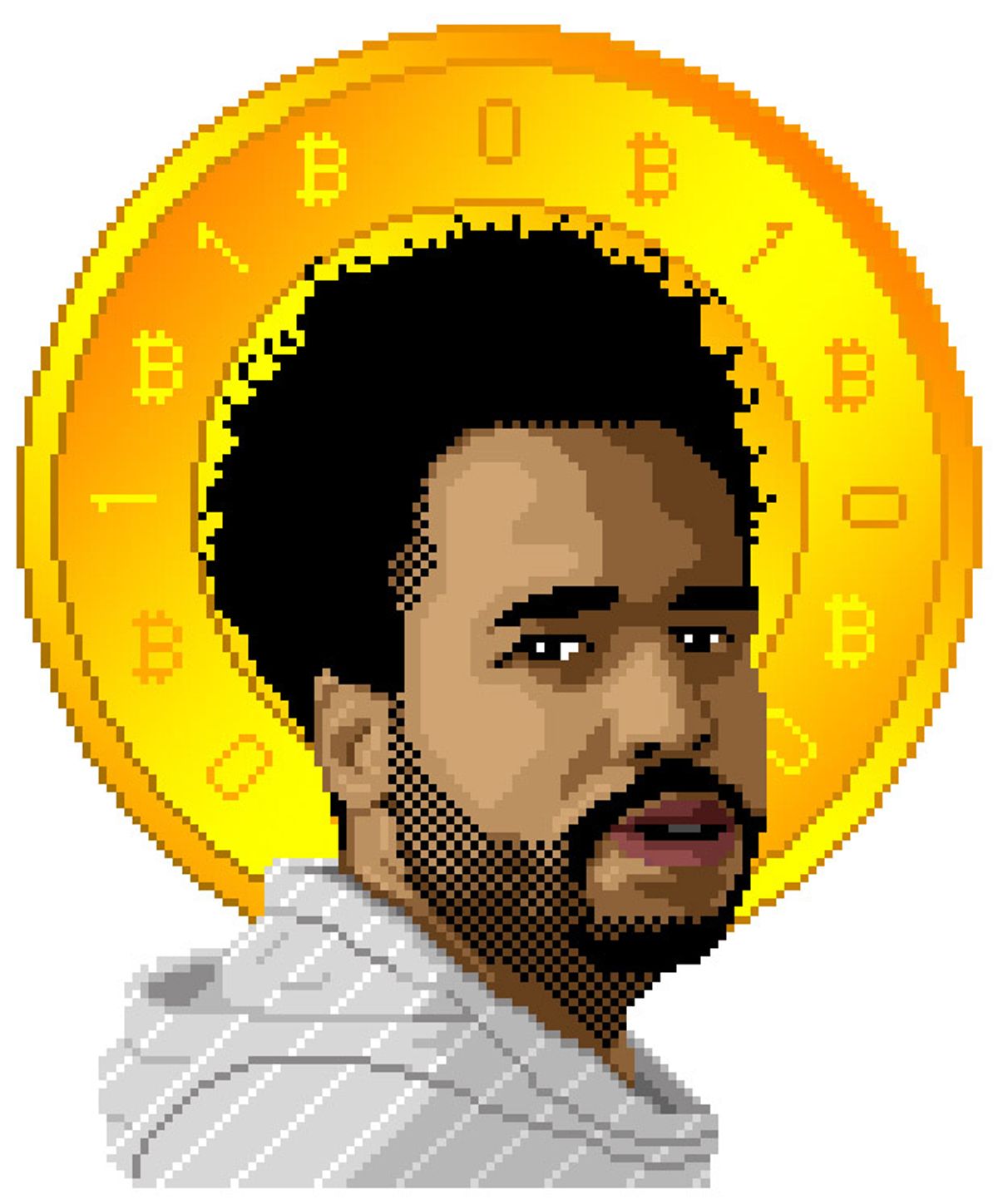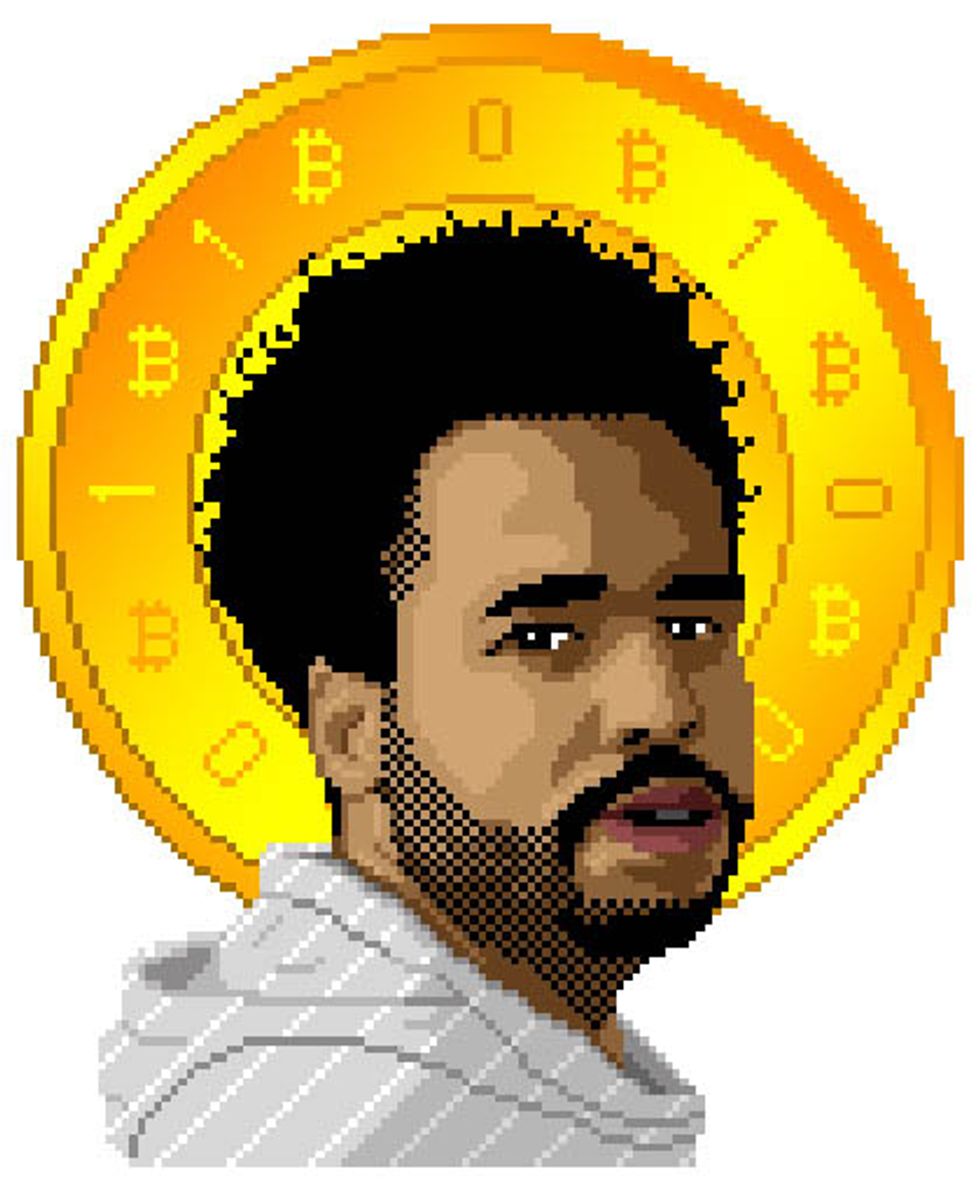Don’t be fooled by the US $100-plus exchange rate. Bitcoin is an experiment—a work in progress. Even the core developers of Bitcoin admit that it is still in beta. After all, the concept of a peer-to-peer digital currency was introduced only a little more than four years ago, and we still have much to learn about how it works, what its vulnerabilities are, and what its true potential is.
Today, Bitcoin is only one of a new breed of cryptocurrencies. There are many others—with names like MasterCoin, Novacoin, and Litecoin—being actively traded at online currency exchanges. Why so many variations on a single theme? Profit is one obvious answer. The Bitcoin gold rush seems to be peaking now that it’s too difficult to mine them without specialized computers, and those who missed out can always create their own new currencies and hope they catch on. But some of these new currencies—known as alt-coins—seek to improve upon Bitcoin rather than just cash in on the trend.
Dennison Bertram, an outspoken advocate of alt-coin development, argues that the high price of bitcoins these days, while an undeniable mark of success, may keep the community from experimenting with the currency and allowing it to evolve. If major changes to the market are imminent, he says, they will likely first play out on the lower value, more dispensable, alt-coins.
Bertram was involved in designing much of the initial infrastructure for one of the more successful alt-coins, Terracoin. This May, at the Bitcoin 2013 conference, in San Jose, Calif., he spoke on a panel of alt-coin founders about how these competing technologies relate to Bitcoin and the cryptocurrency ecosystem in general. IEEE Spectrum contributor Morgen Peck caught up with him to ask some follow-up questions.
Morgen Peck: How many alt-coins are out there?
Dennison Bertram: These days it’s not even possible to count all the alt-coins out there right now. If you check the site Cryptsy.com, they let you trade maybe 50 alt-coins, depending on the day. There is incredible variety, but unfortunately only in name. Essentially, all the current coins are in one way or another children of Bitcoin.
Morgen Peck: Do any of them stand out?
Dennison Bertram: Litecoin uses a fundamentally different encryption algorithm to validate the block chain, but structurally it still works like Bitcoin. You can use the analogy of a car, where you could swap a gas engine out for an electric engine. It’s still a car, but there are significant differences.
Morgen Peck: You’ve been involved in one alt-coin in particular, called Terracoin. What is it, and why do you think it’s important?
Dennison Bertram: Coins like Terracoin—which were, in my mind, meant to be more like an experimental Bitcoin testnet—are more like hot-rodding your car. It’s the same engine, just different parameters. Terracoin originally had faster confirmation times, a different difficulty adjustment formula, a different monetary supply, and a different coin creation rate. That was at the start. Then it was attacked by someone with far more computing power than the entire network, and it became necessary to change a lot of things in a very short time—perhaps not all to the benefit of the original idea. It’s been kind of struggling to find its feet ever since, but it has provided valuable insight into the creation of an alt-coin economy, as well as learning about new vectors for attack on Bitcoin-style alt-coins.
Morgen Peck: The existence of alt-coins suggests that a significant number of people are dissatisfied with certain aspects of the Bitcoin protocol. What are the biggest complaints that you’re aware of?
Dennison Bertram: I would disagree with this. The existence of alt-coins suggests that people are more interested in experimenting with systems of storing value more than anyone might have expected prior to Bitcoin. While Bitcoin is already a billion-dollar monetary instrument, people forget it’s still just an experiment. Because it’s worth so much money now, the developers are very reluctant to make any changes to the protocol lest they make a small error or oversight that results in some traumatic collapse in the whole system.
Many people are unaware that there actually exists a parallel Bitcoin network called the testnet, where many features originally envisioned by [pseudonymous Bitcoin inventor] Satoshi Nakamoto—but not enabled on the real Bitcoin network—are activated to allow for testing. Recently, I have been trying to bring more attention to the Bitcoin testnet network in an effort to convince the developers that the Bitcoin testnet should be allowed to flourish as a viable alt-coin, where the original ideas behind Bitcoin and the protocol can be fully experimented with.
Morgen Peck: So the testnet is kind of an alt-coin of its own then? What kinds of things can you do with it that you can’t do with Bitcoin?
Dennison Bertram: For example, in the Bitcoin testnet scripting is enabled, which actually allows for your money to satisfy logic conditions. There is a great video from the London conference last year on YouTube about Bitcoin scripting. Using just Bitcoin, smart cards could transfer ownership based on your Bitcoin address, or money can be distributed according to certain conditions. All sorts of fascinating possibilities are possible under the initial Bitcoin architecture. However, they are so cutting-edge that they are disabled on the normal Bitcoin network; developers want to wait for more testing before enabling them, concerned about what sorts of exotic transactions people might come up with.
My worry, however, is that the Bitcoin user base has gotten extremely conservative in response to the meteoric rise in Bitcoin value, and many Bitcoin users see Bitcoin as a kind of digital equivalent to money. They treat it just as they would the zeros and ones on a bank statement. But they don’t understand its full potential.
Morgen Peck: Do you really think these experiments need to play out on alt-coins that are actually being traded for other currencies? Wouldn’t it be better to let people make their mistakes on a system where there was nothing to lose?
Dennison Bertram: Generally, the Bitcoin developers look unfavorably on the idea of letting the Bitcoin testnet accumulate value in the eyes of users. But I have been arguing that it is only when these things have value that you get a live economy with the vibrance and diversity needed to really test the vast ecosystem of possibilities that Bitcoin offers.
Morgen Peck: Are all of these alt-coins just staging grounds for the future development of Bitcoin, or do you think one of them could blossom into its own viable cryptocurrency?
Dennison Bertram: The only one at the moment that I think could really catch up to Bitcoin is Litecoin. It’s been around much longer and was one of the earlier alt-coins that offered something truly different than Bitcoin. That said, it is still extraordinarily far behind Bitcoin, with Bitcoin outpacing it faster then ever. The other coins are interesting but don’t really hold a candle to Bitcoin. If we were talking a year ago, it might have been different, but these days Bitcoin is hitting network effect and really becoming a worldwide currency.




